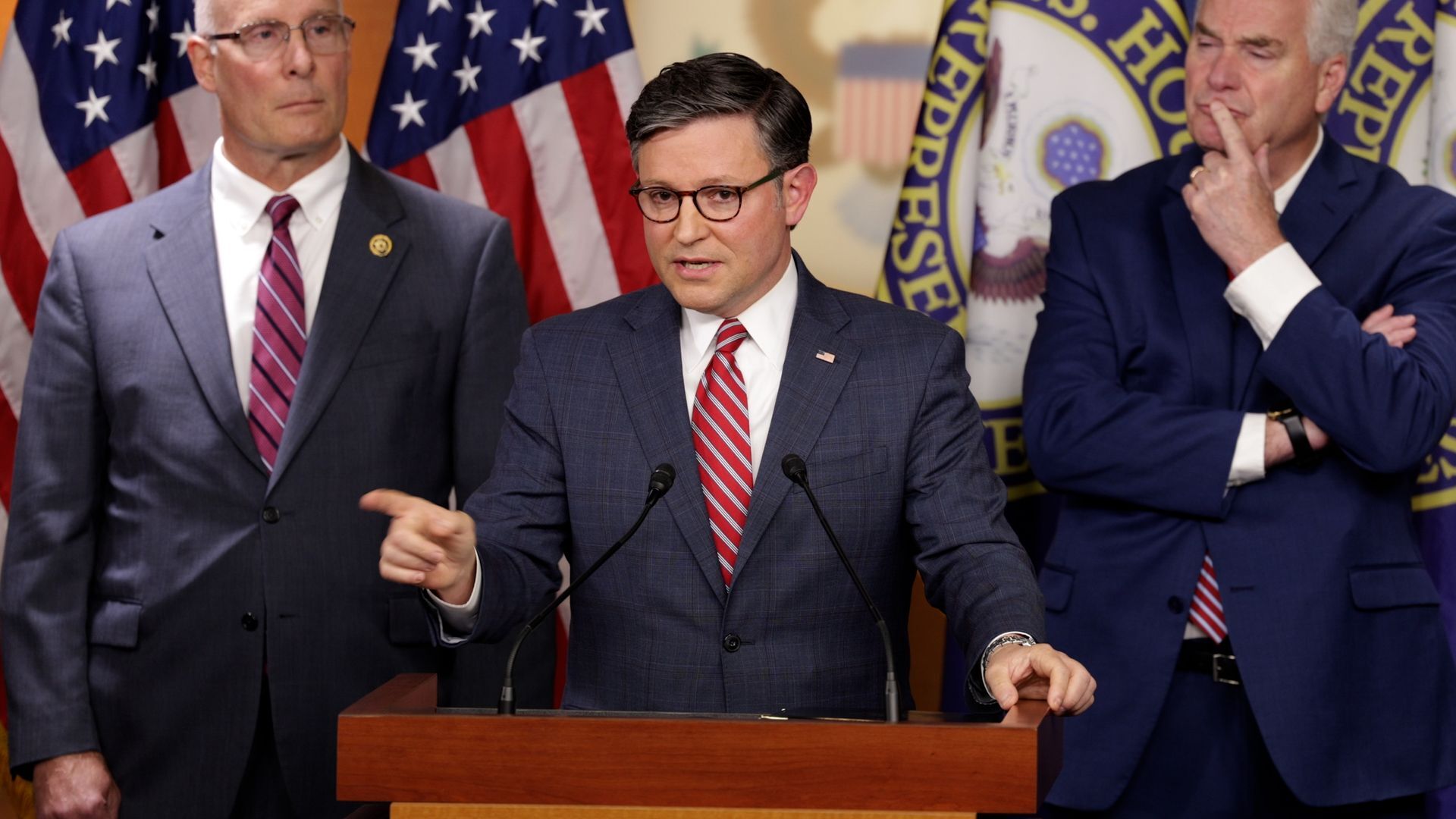
House Speaker Mike Johnson’s effort to approve a temporary government spending package is on rocky ground. His bill would keep the government open for six months at current funding levels and require proof of citizenship to register to vote. It’s being opposed both by Democrats and the right flank of his party.
Rep. Pete Aguilar, D-CA: “House Republicans are leading us toward a government shutdown.”
Rep. Marjorie Taylor Greene, R-GA: “The worst thing that Republicans in the House can do is create a fake fight that the base knows they’re lying about and frustrate our voters going into November 5. That’s how you lose the House of Representatives on[sic] an election.”
Congress needs to approve funding by September 30 to avoid a shutdown. Both sides have different issues with Johnson’s plan.
Republicans who oppose the bill don’t think it sufficiently reduces spending, after all, a continuing resolution is an extension of the current budget.
Rep. Marjorie Taylor Greene, R-GA: “You have to vote for a continuing resolution that continues the Biden Administration’s budget that pays for the Green New Deal that pays for all these horrific things that all these people are sick of. It’s absurd.”
They’re also concerned Johnson could remove the measure to require proof of citizenship for voter registration once Senate Democrats refuse to approve it. But Johnson says he’s standing strong.
House Speaker Mike Johnson, R-LA: “I am resolved on this and I don’t know what more I can say to show that conviction.”
House Democrats are also opposed to the measure and it appears a clean CR, that keeps everything exactly as it is now with no strings attached is becoming increasingly likely.
Rep. Pete Aguilar, D-CA: “The only way to pass a government funding bill is to pass it on a bipartisan basis.”
Typically when Congressional leadership in either party bring forward a bill they know won’t be signed into law, they do it to strengthen their negotiating position. If they can get all the members of their party behind to vote for it, they have a lot more leverage. But in this case – Johnson will lose leverage if he brings this up for a vote and a number of Republicans vote against it. So we will watch how he plays his cards over the next couple of days. For more reporting straight from DC, download the straight arrow news app and turn on notifications.











